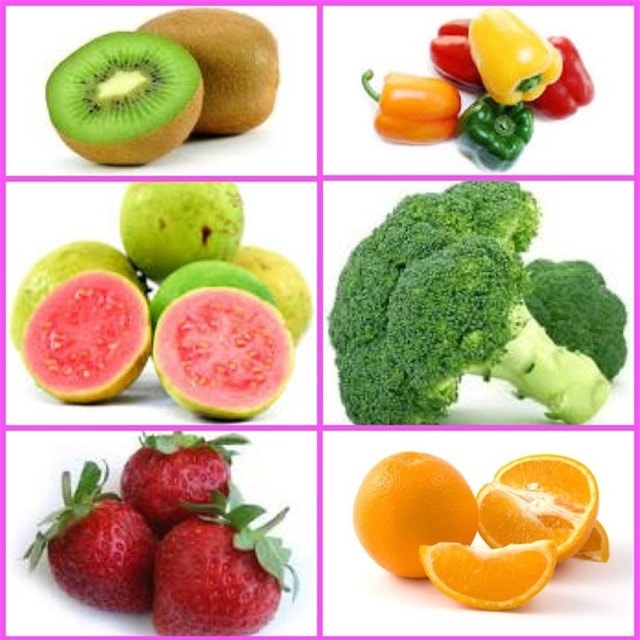Vegetables prevent aging
The principles of a basic anti-aging diet include a diet that is energy-sufficient, balanced in nutrients, and increased ingestion of foods rich in antioxidants.
In which vegetables play an important role.
Vitamin E
Vitamin E is the most abundant fat-soluble antioxidant in the body. It is one of the most effective antioxidants in destroying free radical chains, especially lipid oxidation.
Because the brain and cell membranes are mainly composed of fat, the most important antioxidant for the brain and cells is vitamin E. In addition, vitamin E also has a very clear effect in preventing cardiovascular disease and reducing fatigue and weakness.
 |
| Vitamin C is abundant in cauliflower, peppers and fruits such as oranges, guava, strawberries... |
Foods rich in vitamin E are soybeans, bean sprouts, sesame, peanuts, corn kernels, carrots, barley sprouts, sunflower seeds, avocado, papaya, tomatoes, green leafy vegetables, etc.
Vitamin C
Vitamin C is the most abundant water-soluble antioxidant in the body, working mainly in cellular fluids, supporting the immune system, creating a barrier against free radicals - the cause of premature aging.
Vitamin C is abundant in fresh fruits and vegetables, especially grapefruit, oranges, apples, guava, cherries, ripe plums, and ripe papaya. Cauliflower is also a vegetable that contains vitamin C and antioxidant carotene, which helps prevent aging. Cabbage also contains a lot of vitamin C and fiber, which promotes intestinal motility, keeps the digestive system smooth, and supports detoxification.
Lycopene
Lycopene is an antioxidant found in tomatoes that keeps skin looking youthful and reduces the risk of heart disease and some cancers. Tomatoes also contain iron, which helps prevent anemia and fatigue. Lycopene is also found in red cabbage and watermelon.
Beta-carotene
Beta-carotene is a fat-soluble antioxidant, found in yellow or orange fruits and vegetables (carrots, pumpkin, ripe papaya, ripe mango...) or dark green leafy vegetables (bok choy, spinach, Malabar spinach, sweet potato leaves, amaranth, broccoli).
Beta carotene is a precursor of vitamin A, when absorbed into the body it is converted into vitamin A. In addition to the effects of vitamin A, it does not cause overdose toxicity like vitamin A and especially beta carotene is much better at eliminating free radicals than vitamin A. Many studies have shown that the ratio of beta carotene in food is associated with a reduced risk of cancer and skin rejuvenation.
According to health and life
